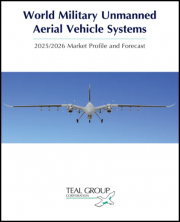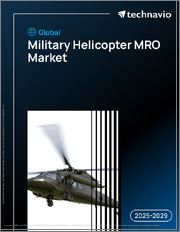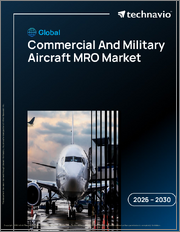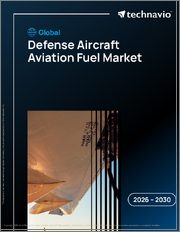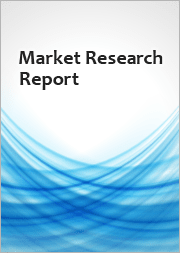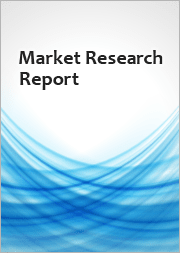
|
시장보고서
상품코드
1789641
수상비행기 시장 : 유형별, 지역별Seaplanes Market, By Type (Floatplane, Amphibian, and Flying boat), By Geography (North America, Latin America, Europe, Asia Pacific, Middle East & Africa) |
||||||
수상비행기 시장은 2025년에는 18억 3,000만 달러로 추정되며, 2032년에는 25억 6,000만 달러에 달할 것으로 예측되며, 2025-2032년의 연평균 성장률(CAGR)은 4.9%로 성장할 것으로 예측됩니다.
| 리포트 범위 | 리포트 상세 | ||
|---|---|---|---|
| 기준연도 | 2024 | 2025년 시장 규모 | 18억 3,000만 달러 |
| 실적 데이터 | 2020-2024년 | 예측 기간 | 2025-2032년 |
| 예측 기간 : 2025-2032년 CAGR : | 4.90% | 2032년 가치 예측 | 25억 6,000만 달러 |
수상비행기는 호수, 강, 항구, 해안 지역 등의 수면에 이착륙할 수 있습니다. 플로트 플레인 또는 플라잉 보트라고도 불리는 이 항공기는 활주로 인프라가 제한적이거나 존재하지 않는 지역, 특히 외딴 해안 지역이나 황무지에서 매우 유용하게 활용될 수 있습니다. 시장에는 소형 단발 수륙양용기, 대형 다발 상업용 수상기 등 다양한 유형의 항공기가 포함됩니다.
시장 역학
수상비행기가 독특한 경험을 제공하고, 기존 교통수단으로는 접근하기 어려운 오지나 자연 그대로의 모습을 간직하고 있는 여행지로의 접근성을 제공하기 때문입니다. 해안 지역에서는 포인트 투 포인트 연결에 대한 수요가 많으며, 수상비행기는 활주로 인프라 없이도 효율적인 운송을 가능하게 합니다. 또한 도시 지역의 항공 모빌리티에 대한 투자 증가와 대도시의 해안 교통 허브 개발도 시장에 많은 기회를 가져다주고 있습니다.
그러나 수상비행기 운항과 관련된 엄격한 규제 프레임워크와 인증 요건이 국가와 지역마다 다르기 때문에 시장 진입과 운항 확대가 쉽지 않습니다. 날씨의 영향과 계절적 운항 제한도 수상비행기 서비스의 신뢰성과 수익성에 영향을 미칩니다. 특수한 유지보수 요건, 수상비행기 운항을 위한 제한된 인프라, 특정 착륙 자격을 갖춘 숙련된 조종사의 필요성 등 높은 운항 비용은 또 다른 도전이 되고 있습니다.
그럼에도 불구하고 시장 관계자들은 성능을 향상시키면서 운항 비용과 환경 영향을 줄이는 전기 추진 시스템 및 하이브리드 추진 시스템의 기술적 진보에 초점을 맞출 수 있습니다. 또한 동남아시아, 카리브해, 신흥 시장의 해안 지역 등 신흥 시장에서의 수상비행기 서비스 확대는 시장 기업이 개발할 수 있는 많은 미개발 가능성을 제공합니다.
시장 역학
세계 수상비행기 시장은 항공 환경을 재편하고 수상비행기 운영의 새로운 기회를 창출하는 몇 가지 주요 촉진요인에 힘입어 성장하고 있습니다. 주요 촉진요인은 관광 산업의 확대, 특히 모험 관광과 럭셔리 여행 분야에서 수상비행기가 독특한 경험을 제공하고 기존 교통 수단으로는 도달하기 어려운 외딴 자연 그대로의 목적지에 대한 접근성을 제공하는 관광 산업의 확대입니다. 군도 지역과 해안 지역에서는 수상비행기가 고가의 활주로 인프라 없이도 효율적인 운송 솔루션을 제공하는 점대점 연결에 대한 수요가 증가하고 있으며, 이는 시장 성장에 크게 기여하고 있습니다. 또한 도시 지역의 항공 모빌리티에 대한 투자 증가와 주요 도시의 수상 교통 허브 개발은 수상비행기 사업자들에게 새로운 비즈니스 기회를 창출하고 있습니다. 그러나 시장은 확장 가능성을 제한하는 큰 억제요인에 직면해 있습니다. 수상비행기 운항과 관련된 엄격한 규제 프레임워크와 인증 요건은 국가와 지역마다 상이하여 시장 진입과 운항 확대에 장벽이 되고 있습니다. 날씨의 영향을 받고 계절적 운항 제한이 있으므로 특히 기상 조건이 까다로운 지역에서는 수상비행기 서비스의 신뢰성과 수익성에 큰 영향을 미칩니다. 전문적인 유지보수 요건, 수상비행기 운항을 위한 제한된 인프라, 특정 착륙 자격을 갖춘 숙련된 조종사의 필요성 등 높은 운항 비용은 또 다른 도전이 되고 있습니다. 또한 소음 공해 및 해양 생태계에 대한 잠재적 영향과 관련된 환경적 우려로 인해 일부 지역에서는 규제 압력과 지역 사회의 반대가 발생하고 있습니다. 이러한 도전에도 불구하고 이 시장은 전기 추진 시스템 및 하이브리드 추진 시스템의 기술적 진보에 힘입어 성능을 향상시키면서 운항 비용과 환경 영향을 줄일 수 있는 큰 기회를 제공합니다. 지속가능한 항공 솔루션에 대한 관심이 높아지고 단거리 운항용 전기 수상비행기의 개발은 큰 성장 기회로 작용할 수 있습니다. 또한 신흥 시장, 특히 동남아시아, 카리브해, 신흥 국가 연안 지역에서의 수상비행기 서비스 확대는 시장 성장과 다각화를 위한 미개발 잠재력을 제공합니다.
본 조사의 주요 특징
- 세계의 수상비행기 시장을 상세하게 분석했으며, 2024년을 기준 연도로 하여 예측 기간(2025-2032년) 동안 시장 규모(10억 달러)와 연평균 성장률(CAGR)을 조사하여 전해드립니다.
- 또한 다양한 부문에 걸친 잠재적 매출 기회를 밝히고, 이 시장의 매력적인 투자 제안 매트릭스를 설명합니다.
- 또한 시장 성장 촉진요인, 억제요인, 기회, 신제품 출시 및 승인, 시장 동향, 지역별 전망, 주요 기업의 경쟁 전략 등에 대한 중요한 인사이트을 제공합니다.
- 이 보고서는 기업 하이라이트, 제품 포트폴리오, 주요 하이라이트, 성과, 전략 등의 매개 변수를 기반으로 세계 수상비행기 시장의 주요 기업을 프로파일링합니다.
- 이 보고서의 인사이트를 통해 마케팅 담당자와 기업 경영진은 향후 제품 출시, 유형 업그레이드, 시장 확대, 마케팅 전술에 대한 정보에 입각한 의사결정을 내릴 수 있습니다.
- 이 보고서는 투자자, 공급업체, 제품 제조업체, 유통업체, 신규 시장 진출기업, 재무 분석가 등 업계의 다양한 이해관계자를 대상으로 합니다.
- 이해관계자들은 세계 수상기 시장 분석에 사용되는 다양한 전략 매트릭스를 통해 의사결정을 용이하게 할 수 있습니다.
목차
제1장 조사의 목적과 전제조건
- 조사 목적
- 전제조건
- 약어
제2장 시장 전망
- 리포트 설명
- 시장의 정의와 범위
- 개요
제3장 시장 역학, 규제, 동향 분석
- 시장 역학
- 영향 분석
- 주요 하이라이트
- 규제 시나리오
- 제품 발매/승인
- PEST 분석
- PORTER의 산업 분석
- 시장 기회
- 규제 시나리오
- 주요 발전
- 업계 동향
제4장 세계의 수상비행기 시장, 유형별, 2020-2032년
- 플로트 수상기
- 수륙양용 비행기
- 비행정
제5장 세계의 수상비행기 시장, 지역별, 2020-2032년
- 북미
- 미국
- 캐나다
- 라틴아메리카
- 브라질
- 아르헨티나
- 멕시코
- 기타 라틴아메리카
- 유럽
- 독일
- 영국
- 스페인
- 프랑스
- 이탈리아
- 러시아
- 기타 유럽
- 아시아태평양
- 중국
- 인도
- 일본
- 호주
- 한국
- ASEAN
- 기타 아시아태평양
- 중동
- GCC 국가
- 이스라엘
- 기타 중동
- 아프리카
- 남아프리카
- 북아프리카
- 중앙아프리카
제6장 경쟁 구도
- Textron Aviation
- Viking Air Ltd.
- Cessna Aircraft Company
- Consolidated Aircraft Manufacturing Company
- ICON Aircraft
- Dornier Seawings
- ShinMaywa Industries
- Aero Adventure Aviation
- Lake Aircraft Corporation
- Beriev Aircraft Company
- Aero Ltd.
- Evektor-Aerotech CZ
- AVIC
- American Champion Aircraft Corporation
- SHINMAYWA INDUSTRIES
제7장 애널리스트의 권장사항
- 기회
- 애널리스트의 견해
- Coherent Opportunity Map
제8장 참고 문헌과 조사 방법
- 참고 문헌
- 조사 방법
- 출판사 소개
Seaplanes Market is estimated to be valued at USD 1.83 Bn in 2025 and is expected to reach USD 2.56 Bn by 2032, growing at a compound annual growth rate (CAGR) of 4.9% from 2025 to 2032.
| Report Coverage | Report Details | ||
|---|---|---|---|
| Base Year: | 2024 | Market Size in 2025: | USD 1.83 Bn |
| Historical Data for: | 2020 To 2024 | Forecast Period: | 2025 To 2032 |
| Forecast Period 2025 to 2032 CAGR: | 4.90% | 2032 Value Projection: | USD 2.56 Bn |
Seaplanes can take off and land on water surfaces, including lakes, rivers, harbors, and coastal areas. These aircraft, also called floatplanes or flying boats, are very useful in regions where runway infrastructure is limited or non-existent, especially in remote coastal communities and wilderness areas. The market includes different aircraft types, such as small single-engine amphibious aircraft and larger multi-engine commercial seaplanes.
Market Dynamics
The market is seeing growth because of the expanding tourism industry, particularly adventure tourism and luxury travel segments, where seaplanes offer unique experiences and access to remote, pristine destinations that are otherwise difficult to reach through conventional transportation methods. There is a lot of demand for point-to-point connectivity in coastal areas, where seaplanes make efficient transportation possible without needing any runway infrastructure. Also, increasing investments in urban air mobility and the development of waterfront transportation hubs in major cities are creating a lot of opportunities for the market.
Still, strict regulatory frameworks and certification requirements for seaplane operations, which vary across different countries and regions, make market entry and operational expansion difficult. Weather dependency and seasonal operational limitations also affect the reliability and profitability of seaplane services. High operational costs, including specialized maintenance requirements, limited infrastructure for seaplane operations, and the need for skilled pilots with specific water landing certifications, pose additional challenges.
Nevertheless, market players can focus on technological advancements in electric and hybrid propulsion systems, which reduce operational costs and environmental impact while improving performance. Also, the expansion of seaplane services in emerging markets, such as Southeast Asia, the Caribbean, and coastal regions of developing countries, offers a lot of untapped potential that market players can explore.
Market Dynamics
The global seaplanes market is propelled by several key drivers that are reshaping the aviation landscape and creating new opportunities for water-based aircraft operations. The primary driver is the expanding tourism industry, particularly adventure tourism and luxury travel segments, where seaplanes offer unique experiences and access to remote, pristine destinations that are otherwise difficult to reach through conventional transportation methods. The growing demand for point-to-point connectivity in archipelagic regions and coastal areas, where seaplanes provide efficient transportation solutions without requiring expensive runway infrastructure, significantly contributes to market growth. Additionally, increasing investments in urban air mobility and the development of waterfront transportation hubs in major cities are creating new commercial opportunities for seaplane operators. However, the market faces substantial restraints that limit its expansion potential. Stringent regulatory frameworks and certification requirements for seaplane operations, varying across different countries and regions, create barriers to market entry and operational expansion. Weather dependency and seasonal operational limitations significantly impact the reliability and profitability of seaplane services, particularly in regions with harsh weather conditions. High operational costs, including specialized maintenance requirements, limited infrastructure for seaplane operations, and the need for skilled pilots with specific water landing certifications, pose additional challenges. Furthermore, environmental concerns related to noise pollution and potential impact on marine ecosystems create regulatory pressures and community opposition in some areas. Despite these challenges, the market presents significant opportunities driven by technological advancements in electric and hybrid propulsion systems, which promise to reduce operational costs and environmental impact while improving performance. The increasing focus on sustainable aviation solutions and the development of electric seaplanes for short-haul operations represent substantial growth opportunities. Moreover, the expansion of seaplane services in emerging markets, particularly in Southeast Asia, the Caribbean, and coastal regions of developing countries, offers untapped potential for market growth and diversification.
Key Features of the Study
- This report provides in-depth analysis of the global seaplanes market, and provides market size (USD Billion) and compound annual growth rate (CAGR%) for the forecast period (2025-2032), considering 2024 as the base year
- It elucidates potential revenue opportunities across different segments and explains attractive investment proposition matrices for this market
- This study also provides key insights about market drivers, restraints, opportunities, new product launches or approvals, market trends, regional outlook, and competitive strategies adopted by key players
- It profiles key players in the global seaplanes market based on the following parameters - company highlights, products portfolio, key highlights, financial performance, and strategies
- Key companies covered as a part of this study include Textron Aviation, Viking Air Ltd., Cessna Aircraft Company, Consolidated Aircraft Manufacturing Company, ICON Aircraft, Dornier Seawings, ShinMaywa Industries, Aero Adventure Aviation, Lake Aircraft Corporation, Beriev Aircraft Company, Aero Ltd., Evektor-Aerotech CZ, AVIC, American Champion Aircraft Corporation, and SHINMAYWA INDUSTRIES
- Insights from this report would allow marketers and the management authorities of the companies to make informed decisions regarding their future product launches, type up-gradation, market expansion, and marketing tactics
- The global seaplanes market report caters to various stakeholders in this industry including investors, suppliers, product manufacturers, distributors, new entrants, and financial analysts
- Stakeholders would have ease in decision-making through various strategy matrices used in analyzing the global seaplanes market
Market Segmentation
- Type Insights (Revenue, USD Bn, 2020 - 2032)
- Floatplane
- Amphibian
- Flying boat
- Regional Insights (Revenue, USD Bn, 2020 - 2032)
- North America
- U.S.
- Canada
- Latin America
- Brazil
- Argentina
- Mexico
- Rest of Latin America
- Europe
- Germany
- U.K.
- Spain
- France
- Italy
- Russia
- Rest of Europe
- Asia Pacific
- China
- India
- Japan
- Australia
- South Korea
- ASEAN
- Rest of Asia Pacific
- Middle East
- GCC Countries
- Israel
- Rest of Middle East
- Africa
- South Africa
- North Africa
- Central Africa
- Key Players Insights
- Textron Aviation
- Viking Air Ltd.
- Cessna Aircraft Company
- Consolidated Aircraft Manufacturing Company
- ICON Aircraft
- Dornier Seawings
- ShinMaywa Industries
- Aero Adventure Aviation
- Lake Aircraft Corporation
- Beriev Aircraft Company
- Aero Ltd.
- Evektor-Aerotech CZ
- AVIC
- American Champion Aircraft Corporation
- SHINMAYWA INDUSTRIES
Table of Contents
1. Research Objectives and Assumptions
- Research Objectives
- Assumptions
- Abbreviations
2. Market Purview
- Report Description
- Market Definition and Scope
- Executive Summary
- Global Seaplanes Market, By Type
- Global Seaplanes Market, By Region
3. Market Dynamics, Regulations, and Trends Analysis
- Market Dynamics
- Impact Analysis
- Key Highlights
- Regulatory Scenario
- Product Launches/Approvals
- PEST Analysis
- PORTER's Analysis
- Market Opportunities
- Regulatory Scenario
- Key Developments
- Industry Trends
4. Global Seaplanes Market, By Type, 2020-2032, (USD Bn)
- Introduction
- Market Share Analysis, 2025 and 2032 (%)
- Y-o-Y Growth Analysis, 2021 - 2032
- Segment Trends
- Floatplane
- Introduction
- Market Size and Forecast, and Y-o-Y Growth, 2020-2032, (USD Bn)
- Amphibian
- Introduction
- Market Size and Forecast, and Y-o-Y Growth, 2020-2032, (USD Bn)
- Flying boat
- Introduction
- Market Size and Forecast, and Y-o-Y Growth, 2020-2032, (USD Bn)
5. Global Seaplanes Market, By Region, 2020 - 2032, Value (USD Bn)
- Introduction
- Market Share (%) Analysis, 2025, 2028 & 2032, Value (USD Bn)
- Market Y-o-Y Growth Analysis (%), 2021 - 2032, Value (USD Bn)
- Regional Trends
- North America
- Introduction
- Market Size and Forecast, By Type, 2020 - 2032, Value (USD Bn)
- Market Size and Forecast, By Country, 2020 - 2032, Value (USD Bn)
- U.S.
- Canada
- Latin America
- Introduction
- Market Size and Forecast, By Type, 2020 - 2032, Value (USD Bn)
- Market Size and Forecast, By Country, 2020 - 2032, Value (USD Bn)
- Brazil
- Argentina
- Mexico
- Rest of Latin America
- Europe
- Introduction
- Market Size and Forecast, By Type, 2020 - 2032, Value (USD Bn)
- Market Size and Forecast, By Country, 2020 - 2032, Value (USD Bn)
- Germany
- U.K.
- Spain
- France
- Italy
- Russia
- Rest of Europe
- Asia Pacific
- Introduction
- Market Size and Forecast, By Type, 2020 - 2032, Value (USD Bn)
- Market Size and Forecast, By Country, 2020 - 2032, Value (USD Bn)
- China
- India
- Japan
- Australia
- South Korea
- ASEAN
- Rest of Asia Pacific
- Middle East
- Introduction
- Market Size and Forecast, By Type, 2020 - 2032, Value (USD Bn)
- Market Size and Forecast, By Country, 2020 - 2032, Value (USD Bn)
- GCC Countries
- Israel
- Rest of Middle East
- Africa
- Introduction
- Market Size and Forecast, By Type, 2020 - 2032, Value (USD Bn)
- Market Size and Forecast, By Country/Region, 2020 - 2032, Value (USD Bn)
- South Africa
- North Africa
- Central Africa
6. Competitive Landscape
- Textron Aviation
- Company Highlights
- Product Portfolio
- Key Developments
- Financial Performance
- Strategies
- Viking Air Ltd.
- Company Highlights
- Product Portfolio
- Key Developments
- Financial Performance
- Strategies
- Cessna Aircraft Company
- Company Highlights
- Product Portfolio
- Key Developments
- Financial Performance
- Strategies
- Consolidated Aircraft Manufacturing Company
- Company Highlights
- Product Portfolio
- Key Developments
- Financial Performance
- Strategies
- ICON Aircraft
- Company Highlights
- Product Portfolio
- Key Developments
- Financial Performance
- Strategies
- Dornier Seawings
- Company Highlights
- Product Portfolio
- Key Developments
- Financial Performance
- Strategies
- ShinMaywa Industries
- Company Highlights
- Product Portfolio
- Key Developments
- Financial Performance
- Strategies
- Aero Adventure Aviation
- Company Highlights
- Product Portfolio
- Key Developments
- Financial Performance
- Strategies
- Lake Aircraft Corporation
- Company Highlights
- Product Portfolio
- Key Developments
- Financial Performance
- Strategies
- Beriev Aircraft Company
- Company Highlights
- Product Portfolio
- Key Developments
- Financial Performance
- Strategies
- Aero Ltd.
- Company Highlights
- Product Portfolio
- Key Developments
- Financial Performance
- Strategies
- Evektor-Aerotech CZ
- Company Highlights
- Product Portfolio
- Key Developments
- Financial Performance
- Strategies
- AVIC
- Company Highlights
- Product Portfolio
- Key Developments
- Financial Performance
- Strategies
- American Champion Aircraft Corporation
- Company Highlights
- Product Portfolio
- Key Developments
- Financial Performance
- Strategies
- SHINMAYWA INDUSTRIES
- Company Highlights
- Product Portfolio
- Key Developments
- Financial Performance
- Strategies
7. Analyst Recommendations
- Wheel of Fortune
- Analyst View
- Coherent Opportunity Map
8. References and Research Methodology
- References
- Research Methodology
- About us






